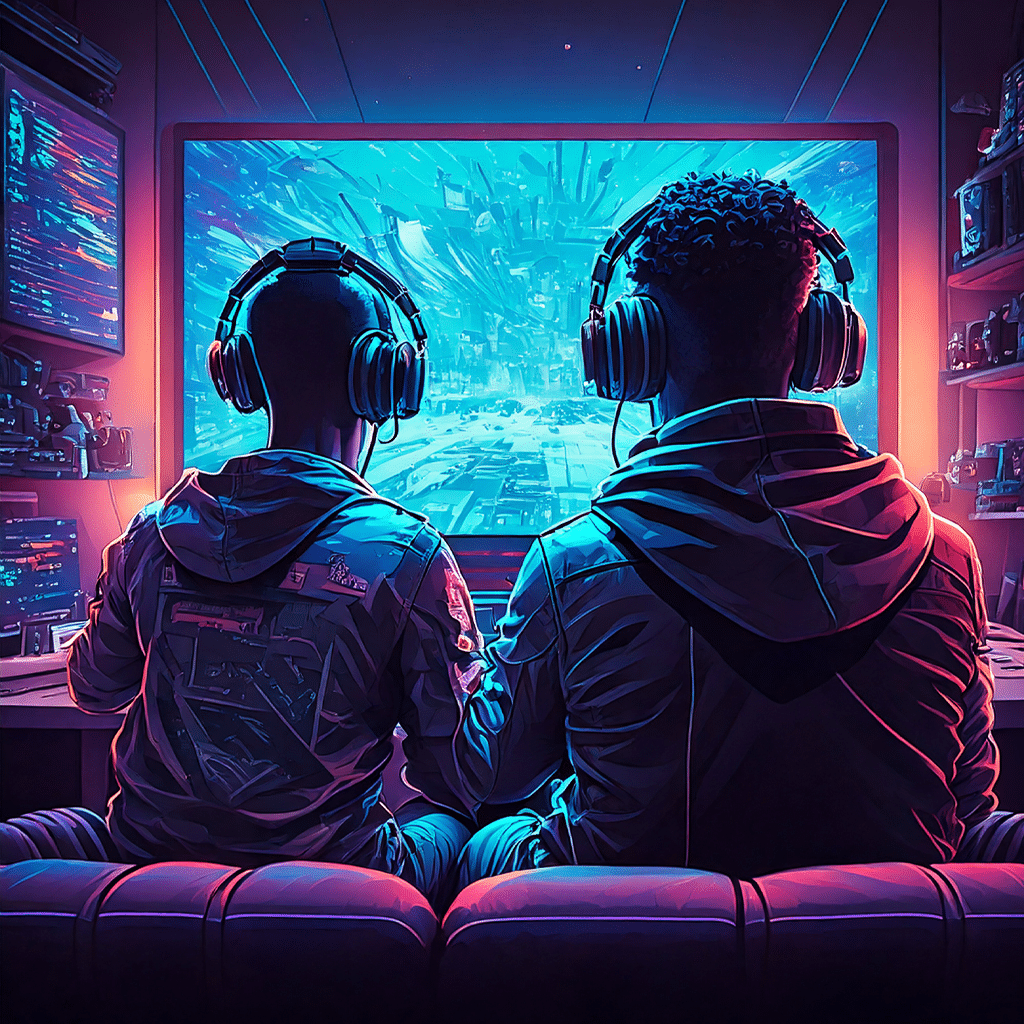Introduction
Multiplayer gaming can be one of the most rewarding experiences when you’re surrounded by teammates who communicate well, play strategically, and maintain a positive attitude. However, every gamer has likely encountered the opposite—toxic teammates, poor communication, and frustrating gameplay experiences.
Being a great teammate isn’t just about winning—it’s about enhancing the game for yourself and others. Whether playing a high-stakes ranked match, a casual co-op mission, or an MMO raid, understanding multiplayer etiquette can help you build better teams, have more fun, and improve overall gameplay.
Let’s examine the key principles of multiplayer etiquette and discuss how you can become the teammate everyone wants on their squad.
Communication is Key
Clear, respectful communication is one of the most significant differences between a frustrating match and a great one. Whether you’re using voice chat, text chat, or ping systems, how you communicate can impact team morale, coordination, and performance.

• Keep your mic on topic – Only call out useful game information (enemy locations, strategies, cooldown timers, etc.).
• No mic? No problem! – Use pings or quick chat features to communicate effectively.
• Avoid unnecessary chatter – Loud music, background noise, or off-topic discussions can be distracting.

• Instead of “You suck, uninstall!” try: “Next time, let’s rotate earlier to avoid getting third-partied.”
• If a teammate makes a mistake, help them improve instead of berating them.
• If you’re frustrated, mute toxic players instead of escalating conflicts.

• Don’t talk over teammates—let them call out important info.
• Balance communication so everyone gets a chance to contribute.
• If multiple people are shot-calling, establish a team leader early in the game.
Respect Your Teammates & Opponents
Respect in multiplayer gaming goes beyond essential sportsmanship—it’s about creating a welcoming and enjoyable environment for everyone.

• A little friendly banter is acceptable, but excessive taunting, insulting, or griefing ruins the experience.
• Don’t intentionally sabotage teammates by blocking pathways, stealing resources, or team-killing.
• Never AFK or rage quit—leaving a match early can ruin the game for everyone.

• Multiplayer gaming is global, so not everyone plays the same way.
• If someone doesn’t speak your language, communicate with pings or simple callouts.
• Be patient with newer players—everyone starts somewhere.

• If you win, resist the urge to rub it in with excessive celebrations or post-game insults.
• If you lose, don’t blame teammates, complain about lag, or accuse others of cheating.
• A simple “GG” (Good Game) at the end of a match goes a long way in maintaining a positive gaming community.
Playing Your Role & Supporting the Team
A great teammate doesn’t just play for themselves—they understand their role and adapt to the team’s needs.

• First-Person Shooters (FPS): Are you playing support or entry fragger? Stick to your strengths.
• MOBAs: Are you a tank, a damage dealer, or a healer? Play accordingly.
• Battle Royales: Is your squad playing aggressively or strategically? Stay on the same page.

• Chasing kills in a team-based game hurts your squad if you ignore objectives.
• Support teammates when they need backup, even if it means sacrificing personal stats.
• Don’t hoard loot, power-ups, or health packs—share resources wisely.

• If no one plays a critical role, consider switching, even if it’s not your primary.
• If a teammate suggests a better strategy, be open to adjusting your playstyle.
• Always play to make your team stronger—not just yourself.
Handling Conflict & Tilt Like a Pro
Tension can arise even in the best teams. Managing frustration and keeping a level head is key to maintaining good team morale.

• If a teammate makes a mistake, let it go—it’s just a game.
• If things get heated, take deep breaths or mute problem players before engaging.
• Encourage solutions, not blame—ask, “What can we do differently next time?” instead of focusing on failures.

• Mute, block, and report players who are intentionally disruptive.
• Avoid getting into heated arguments in chat—it rarely helps and often distracts from the game.
• If the toxicity is overwhelming, take a break rather than let it ruin your experience.

• Everyone has bad games—acknowledge mistakes instead of blaming others.
• Watch replays or analyze your gameplay to see where you can improve.
• A growth mindset makes you a better player and a more respected teammate.
Conclusion
Multiplayer gaming is at its best when everyone plays with respect, teamwork, and a positive attitude. Being the teammate everyone wants isn’t about being the best player—it’s about:




By following these simple multiplayer etiquette rules, you’ll have better experiences in-game and build stronger friendships, better team synergy, and a more enjoyable gaming environment.
Because at the end of the day, games are meant to be fun—and great teammates make all the difference.



